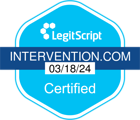When you notice subtle shifts in behavior, withdrawal, emotional ups and downs, and minor substance experimentation, you may find yourself weighing the answers to the question: Is this the sign of something bigger? At Change Institute, led by Brad Lamm, we believe in acting early and not labeling, but rather recognizing and responding..
Early intervention is a compassionate and strategic response to emerging challenges before they escalate into crises. It is widely supported by evidence and is applied in various contexts, including mental health, substance use, developmental, and behavioral issues.
What is Early Intervention?
Early intervention means recognizing and addressing the first signs of mental distress or behavioral changes before they evolve into more serious, deeper-rooted issues. It’s a proactive approach that acknowledges how mental health struggles often begin with subtle shifts that, if left unaddressed, can spiral into chaos and chronic conditions.
At Change Institute, early intervention is one of the most effective tools for prevention, especially when families, educators, and peers are empowered to notice and respond effectively.
Warning signs may be easy to overlook at first, from social withdrawal, sudden mood swings, to a noticeable drop in school or work performance. Some individuals may begin experimenting with substances, engaging in reckless behavior, or expressing feelings of hopelessness. Others may struggle with sleep disruption, anxiety, or emotional outbursts that seem out of character.
By stepping in early, whether through a supportive conversation, school-based services, outpatient care, or family-led interventions, you have a prime opportunity to interrupt the cycle before it spirals.
At Change Institute, our team helps families and professionals recognize early signs and signals, encouraging thoughtful, compassionate action. The sooner help is offered, the more empowered your loved one can be in recovery.
Why Early Intervention Works
Supported by public health and clinical research, early intervention:
- Reduces the need for hospitalization or crisis care
- Improves long-term physical and mental outcomes
- Enhances social, academic, and vocational success
- Strengthens family resilience and adaptability
This proactive level of care is at the core of our philosophy.
Pillars of Early Intervention
The first step in early intervention is learning to recognize the subtle changes that often signal something more significant. This includes shifts in mood, withdrawal from friends or activities, declining performance at school or work, and increased irritability or sadness. Families often hesitate to speak up, fearing they might be overreacting or misreading a situation.
At Change Institute, we teach that it’s always better to lean in with curiosity and care, rather than shy away in fear. Recognizing these early warning signs with empathy, not blame, opens the door to meaningful dialogue and early support, which can prevent more serious issues from developing.
We believe that an intervention needs to be custom-crafted to the loved one’s developmental stage to be truly effective. For minors and young adults, this might mean peer mentoring, coaching, and motivational interviewing, which can help build trust and keep them engaged in the process. For adults, early support may include access to workplace mental health resources, stress management tools, and regular check-ins to stay connected.
At every stage of life, the goal is to meet people where they are and provide care that fits their unique challenges and capacities.
Mental health doesn’t exist in a vacuum. Strong outcomes are built on strong relationships within families, schools, communities, and workplaces. Early intervention is most effective when it involves the voices that matter, the iTeam, as we call it, who are the family, friends, mentors, and even the institutions that surround your loved one..
Whether it’s a teacher offering encouragement, a parent modeling healthy coping skills, or a workplace offering accommodations, these networks form a safety net that fosters stability and resilience. At Change Institute, we mobilize these networks as active participants in the healing process, ensuring no one faces these challenges alone.
Life Stage-Specific Examples
- Teens (13–19): Risk-taking, low mood, substance experimentation: school-based counseling and coaching can interrupt trajectories.
- Young Adults (20–29): Burnout, isolation, mild substance use: brief therapy or wellness coaching restores balance.
- Adults: Early signs of depression, alcohol use, caregiving stress: family intervention and constructive conversations become change agents..
What Families Often Mistake
A common refrain we hear is, “I didn’t want to overreact.” But too often, that hesitation becomes the very spark that ignites a crisis. At Change Institute—and in Brad’s trainings—we urge families to:
- Trust their instincts
- Use neutral language: “Can we talk?” followed by neutral observation statements of what you’ve seen that causes concern.
- Choose supportive, low-pressure conversations.
- Recognizing earlier is always better.
Why Brad Lamm Champions Early Intervention
Brad Lamm has long been a leading voice in the movement toward proactive, compassionate care. He emphasizes that the earlier we connect with someone in distress, the greater the chances of meaningful, lasting change.
Rather than waiting for a full-blown crisis to take hold, Brad advocates for stepping in early with empathy, structure, and support. He believes that early connection is not just helpful but foundational to long-term healing.
Through his signature Breakfree methodology, taught in our BreakFree Intervention Skills Training, Brad equips professionals and peers with the tools to transform concern into action.
This approach turns casual worry or unspoken tension into purposeful, supportive conversations that lay the groundwork for recovery. By identifying warning signs early and engaging with love and clarity, families can shift from reacting in panic to responding with intention, all while casting aside shame and blame.
Early intervention, in Brad’s model, is not about confrontation or control; it’s about creating a bridge between someone’s current pain and their potential for growth and recovery. At Change Institute, we integrate this philosophy into everything we do, helping families move from fear and confusion into confident, collaborative support.
Take the First Step Today
If you’re noticing subtle shifts in a teen, partner, or yourself, it’s time to reach out. Early intervention means hope and prevention.
Contact Change Institute today for a confidential consultation. We’ll help you determine the right level of support and walk with you side by side—before signs become symptoms.

